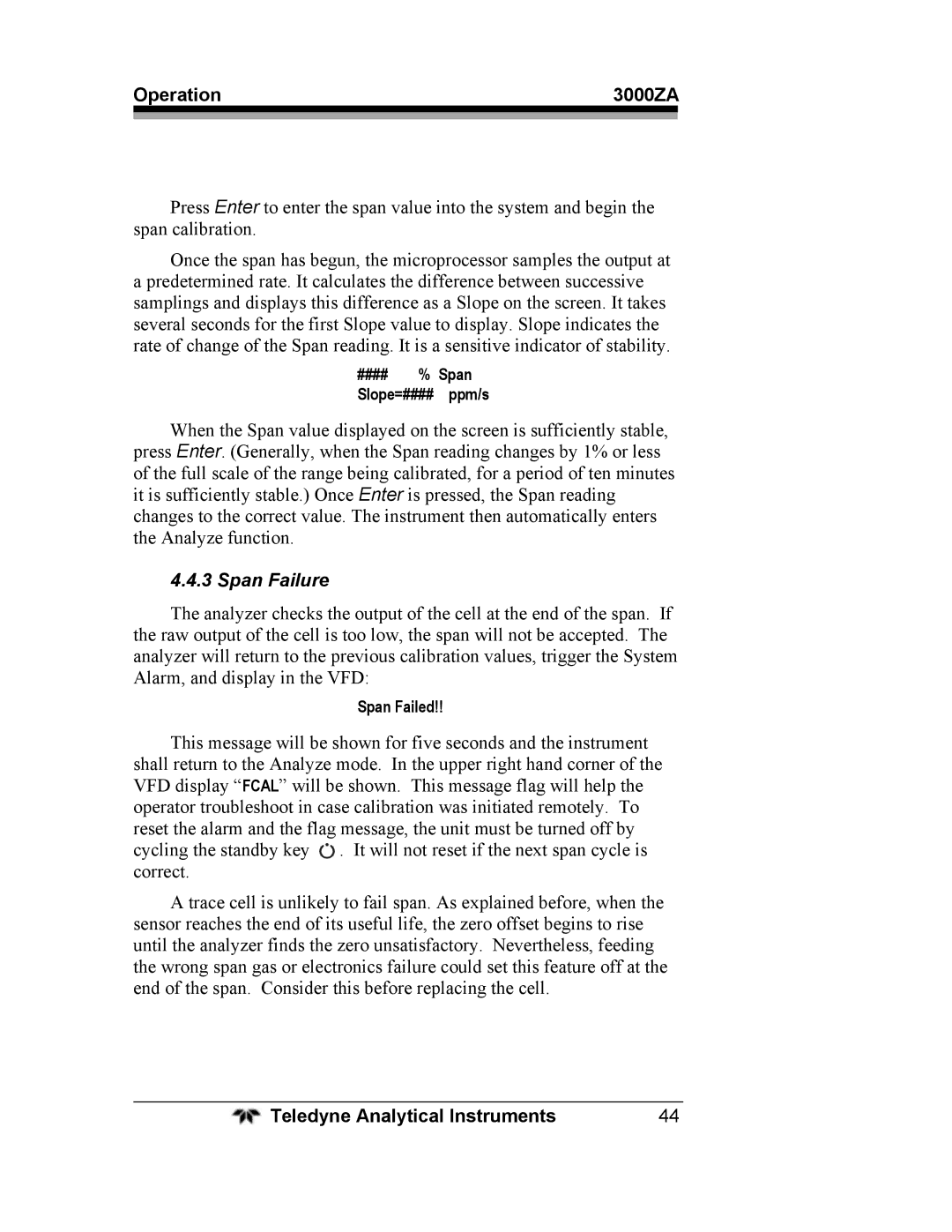Operation | 3000ZA | |
|
|
|
Press Enter to enter the span value into the system and begin the span calibration.
Once the span has begun, the microprocessor samples the output at a predetermined rate. It calculates the difference between successive samplings and displays this difference as a Slope on the screen. It takes several seconds for the first Slope value to display. Slope indicates the rate of change of the Span reading. It is a sensitive indicator of stability.
####% Span
Slope=#### ppm/s
When the Span value displayed on the screen is sufficiently stable, press Enter. (Generally, when the Span reading changes by 1% or less of the full scale of the range being calibrated, for a period of ten minutes it is sufficiently stable.) Once Enter is pressed, the Span reading changes to the correct value. The instrument then automatically enters the Analyze function.
4.4.3 Span Failure
The analyzer checks the output of the cell at the end of the span. If the raw output of the cell is too low, the span will not be accepted. The analyzer will return to the previous calibration values, trigger the System Alarm, and display in the VFD:
Span Failed!!
This message will be shown for five seconds and the instrument shall return to the Analyze mode. In the upper right hand corner of the VFD display “FCAL” will be shown. This message flag will help the operator troubleshoot in case calibration was initiated remotely. To reset the alarm and the flag message, the unit must be turned off by cycling the standby key ![]() . It will not reset if the next span cycle is correct.
. It will not reset if the next span cycle is correct.
A trace cell is unlikely to fail span. As explained before, when the sensor reaches the end of its useful life, the zero offset begins to rise until the analyzer finds the zero unsatisfactory. Nevertheless, feeding the wrong span gas or electronics failure could set this feature off at the end of the span. Consider this before replacing the cell.
Teledyne Analytical Instruments | 44 |
